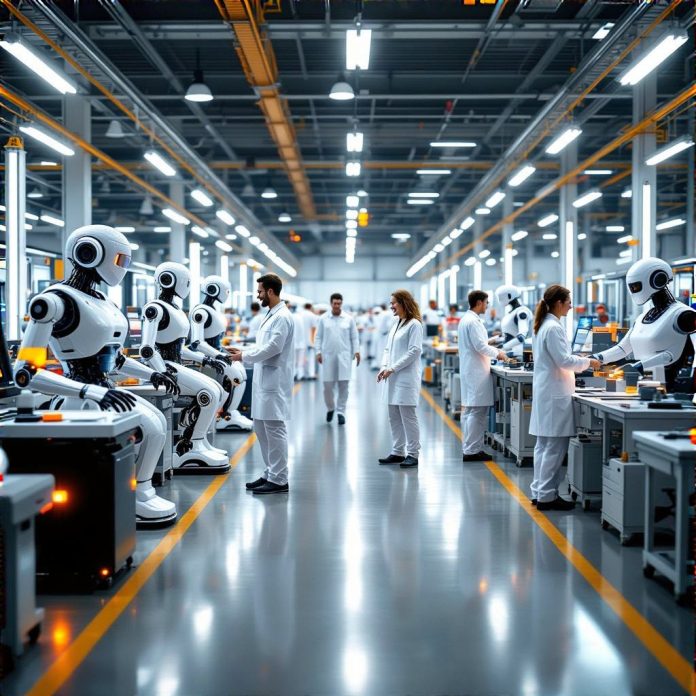The echoes of revitalized industry are growing louder. From the heartland of America to the factories of Europe, a global resurgence in local manufacturing is underway. But this revival isn’t simply about rebuilding what was lost; it’s about reimagining what could be. To truly thrive, these burgeoning manufacturing hubs must embrace a revolutionary approach: adaptive production.
At its core, adaptive production is about creating systems that are responsive, intelligent, and above all, flexible. Imagine a factory floor where robots collaborate seamlessly with human workers, where production lines can be reconfigured in minutes to meet shifting demands, and where data-driven insights constantly optimize every process. This isn’t science fiction; it’s the promise of adaptive manufacturing, and it’s rapidly becoming a necessity.
Perhaps the most pressing reason for this shift lies in the human element. A recent survey revealed that a staggering number of manufacturers see attracting and retaining skilled talent as their biggest hurdle. The old image of manufacturing as a repetitive, physically demanding career simply doesn’t appeal to today’s workforce. Adaptive production addresses this by incorporating cutting-edge technology, creating more engaging roles that emphasize problem-solving, critical thinking, and creative input. By making factories more appealing, manufacturers can draw in the talent they desperately need.
Beyond attracting talent, adaptive production offers a host of other benefits. It allows companies to respond swiftly to market fluctuations, personalize products at scale, and drastically reduce waste. Imagine being able to switch from producing one type of widget to another with minimal downtime, or tailoring products to meet the specific needs of individual customers. This level of agility creates a significant competitive advantage in an increasingly volatile global market. The integration of AI and machine learning becomes crucial, allowing systems to learn from data, predict potential issues, and optimize performance in real-time.
The future of manufacturing hinges on embracing this adaptive mindset. It’s not just about automating tasks; it’s about empowering people and creating systems that are intelligent, resilient, and responsive. By prioritizing flexibility and embracing new technologies, manufacturers can overcome the challenges of talent acquisition, market volatility, and sustainability, ultimately forging a new era of innovation and prosperity.



